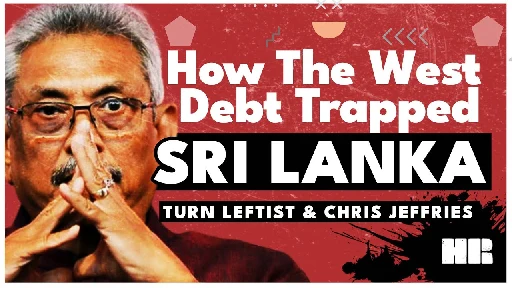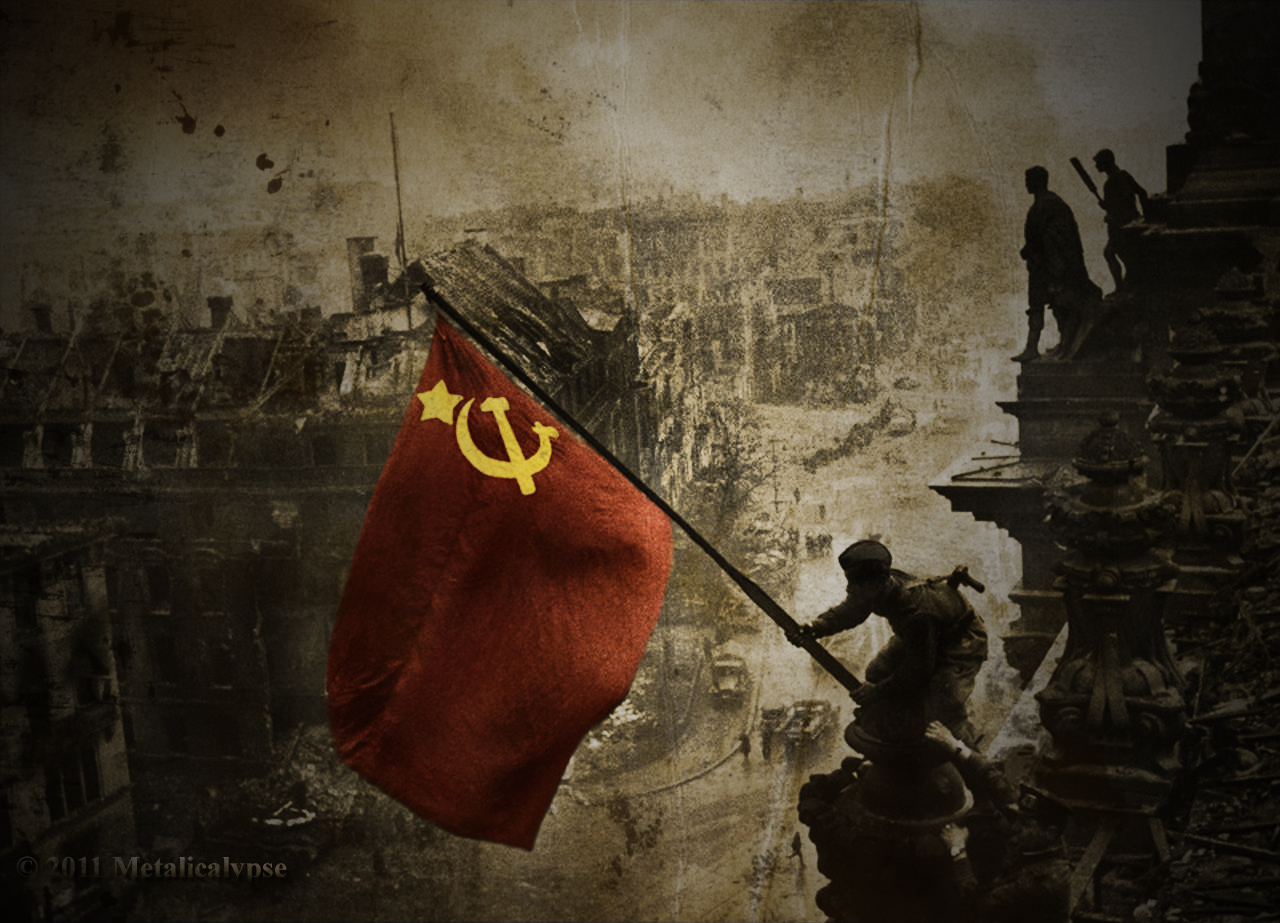
-
Why the Soviets rarely discussed the Holocaust
This is from an email that Grover C. Furr (whom many consider a ‘pro‐Soviet’ historian) sent to me in January 2020:
>After World War 2 the study of the specifically anti-Jewish aspect of German massacres was not emphasized. Soviet Jews were targeted, but so were all communist party members. The Soviet government had a policy not to emphasize the sufferings of any one national group over others. They emphasized that every group, all Soviet citizens, were massacred by the Nazis. And that is true, of course. > >The Soviet writer Vassily Grossman and others composed a "Black Book of Soviet Jewry" about Nazi targeting of Jews. Soviet authorities refused to publish it because it singled out Jews, as opposed to other Soviet peoples. (Grossman was a communist who later, after Khrushchev's "Secret Speech," became an anticommunist because he believed Khrushchev's lies). > >The Soviets also had a big problem with Zionism, particularly after the formation of the State of Israel in 1948. However, the Soviets also set up the Jewish Anti-Fascist Committee, to raise awareness of the Nazis' attacks specifically on Jews. This was certainly acknowledgement of the specifically anti-Jewish aspect of Nazi policy. > >The problem was that the JAFC morphed into a Zionist organization. And Zionism was hostile to the concept of Soviet citizenship and internationalism. A dozen leaders of the JAFC were arrested in 1948-9, and tried for treason as American spies in 1952. All but one were executed. > >Once Stalin died, they were exonerated — by Lavrentii Beria! (assuming the documents we have now are genuine). But Beria evidently did not think that Stalin had anything to do with this. Beria blamed an anti-Semite who was a high-ranking officer[.] > >In 1948 Il'ia Erenburg, a famous Soviet Jewish writer (and one who did not like Stalin) published "Answer to a Letter" in Pravda. It's an affirmation of the USSR as the only real homeland for Jews and other national groups, and a critique of Zionism. Some years ago I translated it and put it on line: https://msuweb.montclair.edu/~furrg/pol/erenburganswer.pdf > >One more point: The concept of "genocide" as we understand it today was invented by Raphael Lemkin in the mid-1940s. But Lemkin was just as anticommunist and anti-Soviet as he was anti-Nazi. Consequently, for a long time the concept of Nazi genocide was associated with anticommunism. > >So! Should the Soviets, during the Stalin period, have published The Black Book and, in general, encouraged or at least permitted study and publication about the specifically anti-Jewish aspect of Nazi mass murder? In my opinion, sure they should have! "Hindsight is 20/20!" But I understand why they did not. > >After Stalin's death, and especially after Khrushchev's lying "Secret Speech," the campaign to get Soviet Jews to emigrate to Israel got under way in a big way. I haven't studied this period. It's quite different from the earlier period.
(Emphasis added.)
In sum, the Soviets were usually shy about discussing the Shoah because they were worried about accidentally coming across as chauvinistic. It was almost certainly not, as some historians (including the otherwise respectable John-Paul Himka) have suggested, the result of antisemitism.
It is worth noting that despite their general timidity about the subject, the Soviets were also among the first to document and portray the Shoah. Quoting Rich Brownstein’s Holocaust Cinema Complete, pages 21 and 44:
>Surprisingly, half of the first Holocaust films came from behind the “Iron Curtain” […] Over 40 percent of the Post-War Era Holocaust Films (38) were produced by Soviet or [other] Eastern Bloc countries.
See also: First Films of the Holocaust: Soviet Cinema and the Genocide of the Jews, 1938–1946 and The Phantom Holocaust: Soviet Cinema and Jewish Catastrophe.
-
Spanish Republican caves discovered
>We do not know the traditional name of this cave located in the south face of the Sierra de los Collaos. It is very small and the entrance is difficult to locate. From the small entrance it is possible to gain access to a secondary tunnel that connects with a small open area (about two meters long and one meters wide) with a flat floor. > >This space was adapted by the militiaman to create an adequate space to live and sleep. The remains of hearths can still be seen in the cave, and from the entrance the main road of the Trubia Valley is visible, as well as other traditional paths and roads. At the entrance of the cave there is an inscription on the wall (Figure 6), which reads >>La República >>La libertad >>La cultura >>La enseñanza >>[The Republic >>Freedom >>Culture >>Education] > >[…] > >El Veiru cave is on the north side of the Sierra de los Collaos. […] Various graffiti were recorded in this cave. The first depicts the flag of the Spanish Section of the International Communist Party, showing the militia group’s political affiliation (Figure 7). The interviews revealed that the Communists were only a small group in Villanueva. > >The individuals who established the Cooperative were socialists linked with the UGT trade union and the Spanish Socialist Party the PSOE. However the popularity and membership of the Communist Party grew amongst troops on the battle fronts, with membership rising from a pre-war 80,000 to more than 300,000 by October 1937 (Hernández 2010, 356).
- ifddr.org Risen from the Ruins: The Economic History of Socialism in the German Democratic Republic
‘Risen from the Ruins’, the first edition of the new series ‘Studies on the DDR’, follows the foundation of the German Democratic Republic (DDR) after World War II and traces its development from an anti-fascist democratic state to a socialist one. The study investigates the DDR’s economic efficienc...
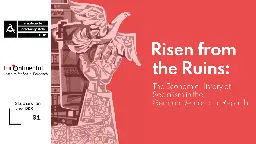
(Mirror.)
>In the 1950s, the large gaps in the production chain caused by the war and reparations continued to loom over the DDR’s economy. The economic isolation of the DDR led to pragmatic choices: if there was no iron coming from the West, then it had to be mined locally, no matter how poor the quality or how expensive it was to produce. If no coal or oil was available, then they used the only thing left: brown coal. > >Brown coal, or lignite, was the only raw fuel that was available in the East in significant quantities. Though using it was not environmentally friendly, there was no alternative due to external circumstances. > >The creation of the DDR’s own iron, steel, and machine industries as a basis for its industrial development was the main focus of development in the DDR’s early years. The first Five-Year Plan therefore envisaged doubling industrial production between 1951 and 1955. > >The enormous factories that were built all over the republic as a result brought young people into previously sparsely settled regions. New villages and towns were built and became home to thousands of people. In forty years, the DDR fundamentally changed the face of the formerly underdeveloped agricultural region of East Germany. > >With the gradual stabilisation of the East German economy and the growth of production, the country was able to attract an ever-increasing volume of investment. In the years between 1950 and 1960 alone, this volume increased more than three-fold.
For some ongoing research on the German Democratic Republic, see here.
-
Karl Marx was Right: Capitalism contains the seeds of its own destruction
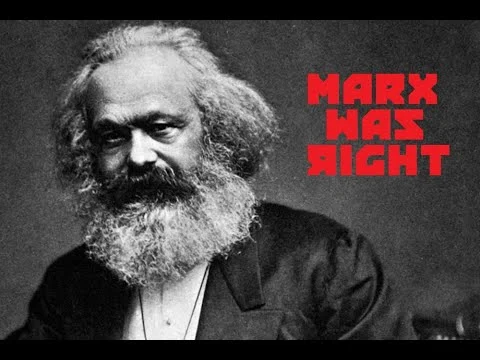
YouTube Video
Click to view this content.
We can't say Karl Marx didn't warn us: capitalism contains the seeds of its own destruction. In their chase for ever higher profits, the capitalists shed workers for machines. The higher return on capital means that the share of profits rises and the share of wages falls, and soon the mass of the population isn't earning enough to buy the goods capitalism produces. And that's exactly what's been happening over the past four years of the Great Recession: ever increasing income inequality, leading to ever weaker aggregate demand -- temporarily disguised by an unsustainable credit binge -- leading to collapse. You don't have to be a communist to see that this is so. We should all be Marxists now.
-
Left Anticommunism: An Infantile Disorder
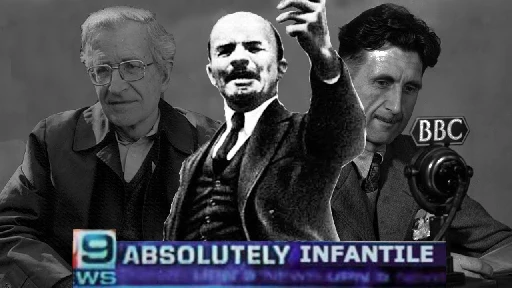
YouTube Video
Click to view this content.
A spicy one discussing Left-Wing Anti-Communism, its faults and the origins of its misguidance.
-
Tito: The leader of communist Yugoslavia
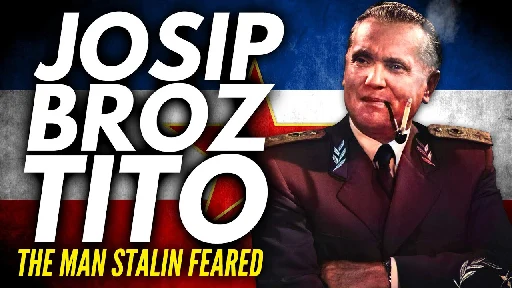
YouTube Video
Click to view this content.
Josip Broz (Serbo-Croatian Cyrillic: Јосип Броз, pronounced [jǒsip brôːz]; 7 May 1892 – 4 May 1980), commonly known as Tito (/ˈtiːtoʊ/;[2] Serbo-Croatian Cyrillic: Тито, pronounced [tîto]), was a Yugoslav communist revolutionary and statesman, serving in various positions from 1943 until his death in 1980.[3] During World War II, he was the leader of the Yugoslav Partisans, often regarded as the most effective resistance movement in German-occupied Europe.[4] He also served as the president of the Socialist Federal Republic of Yugoslavia from 14 January 1953[1] until his death on 4 May 1980.
